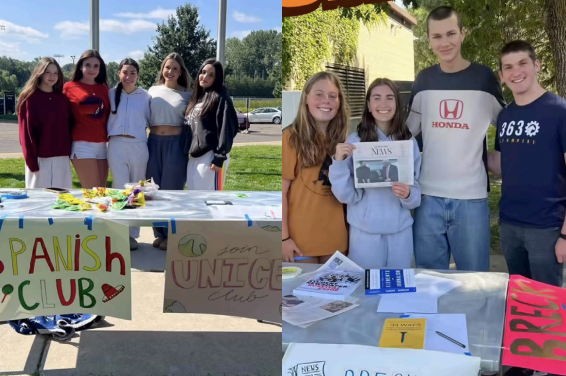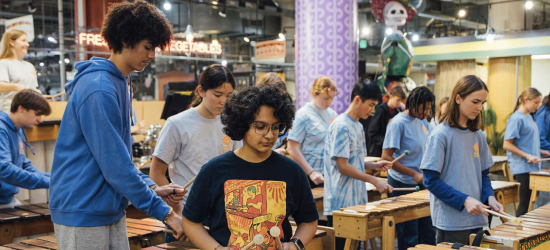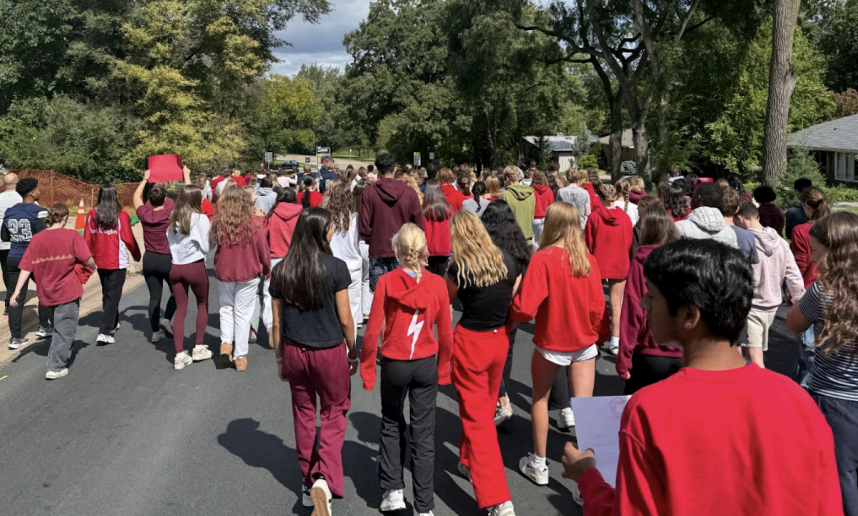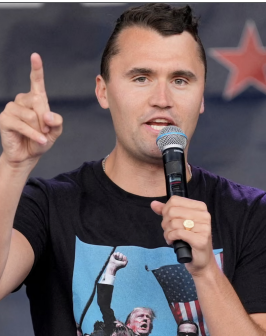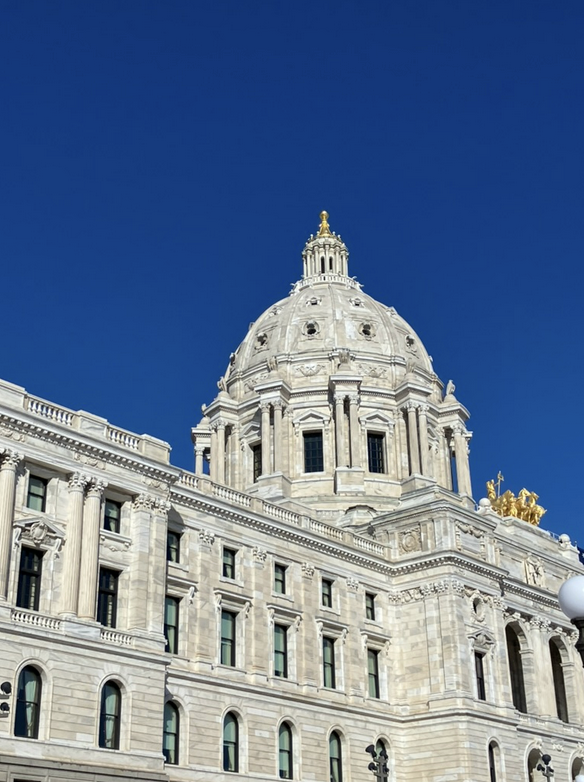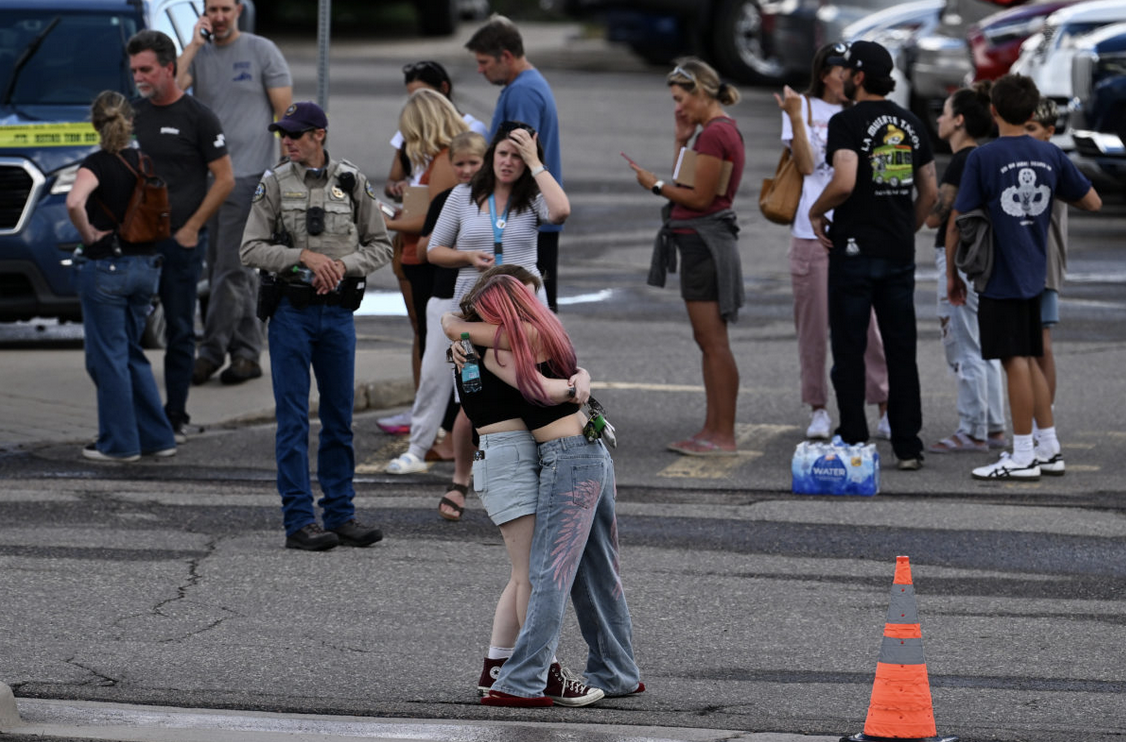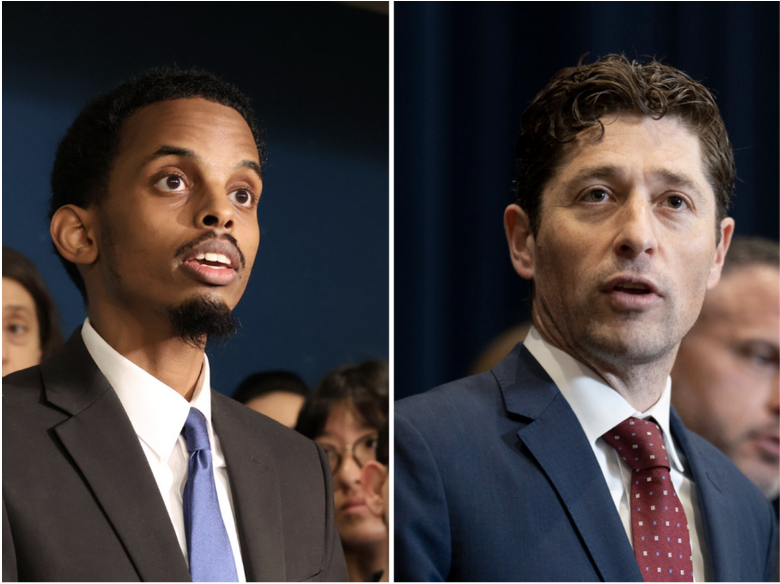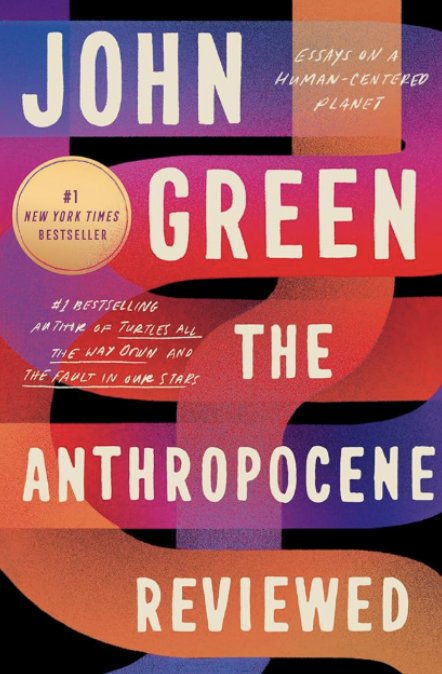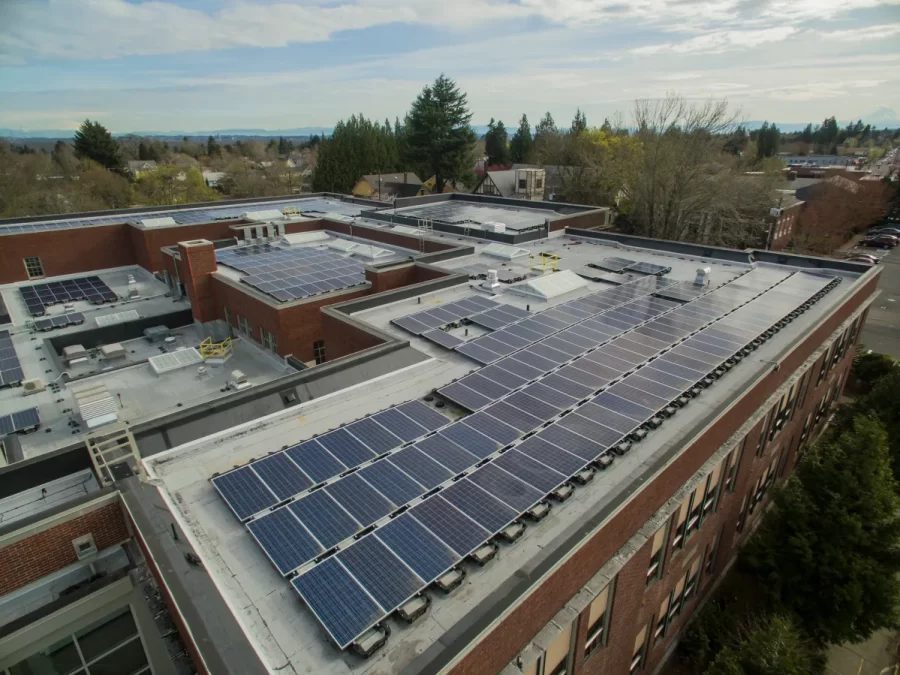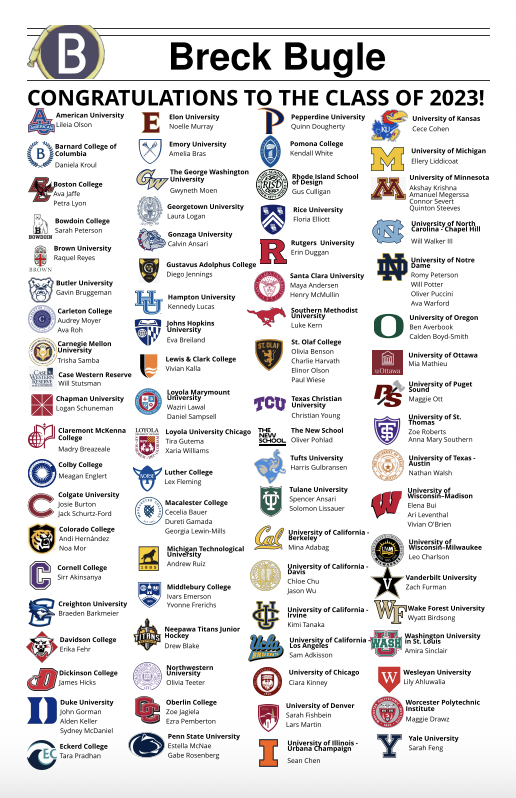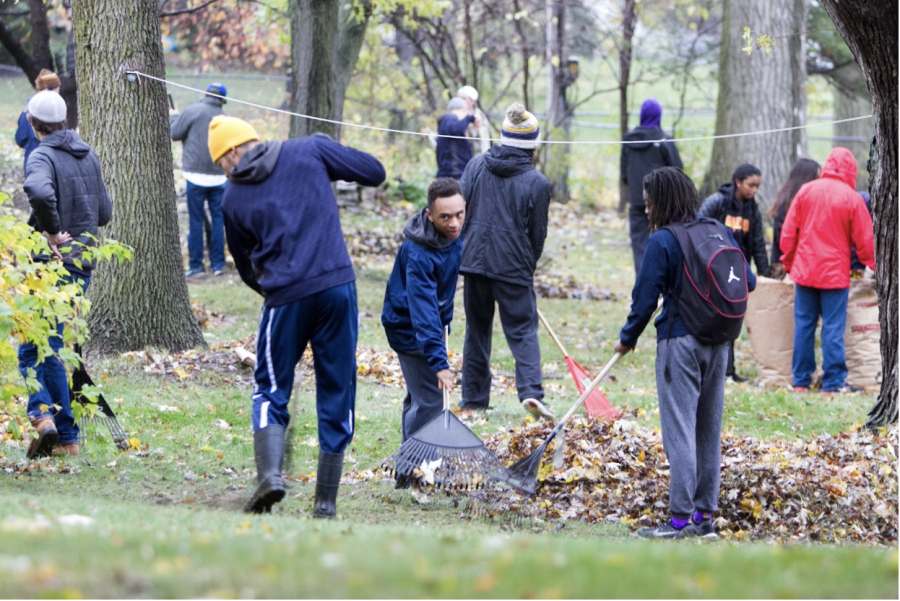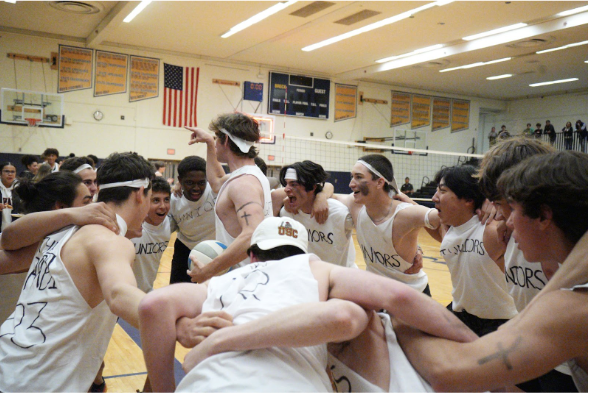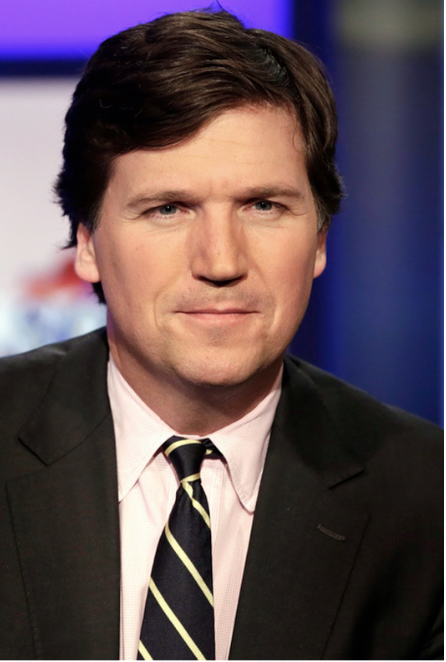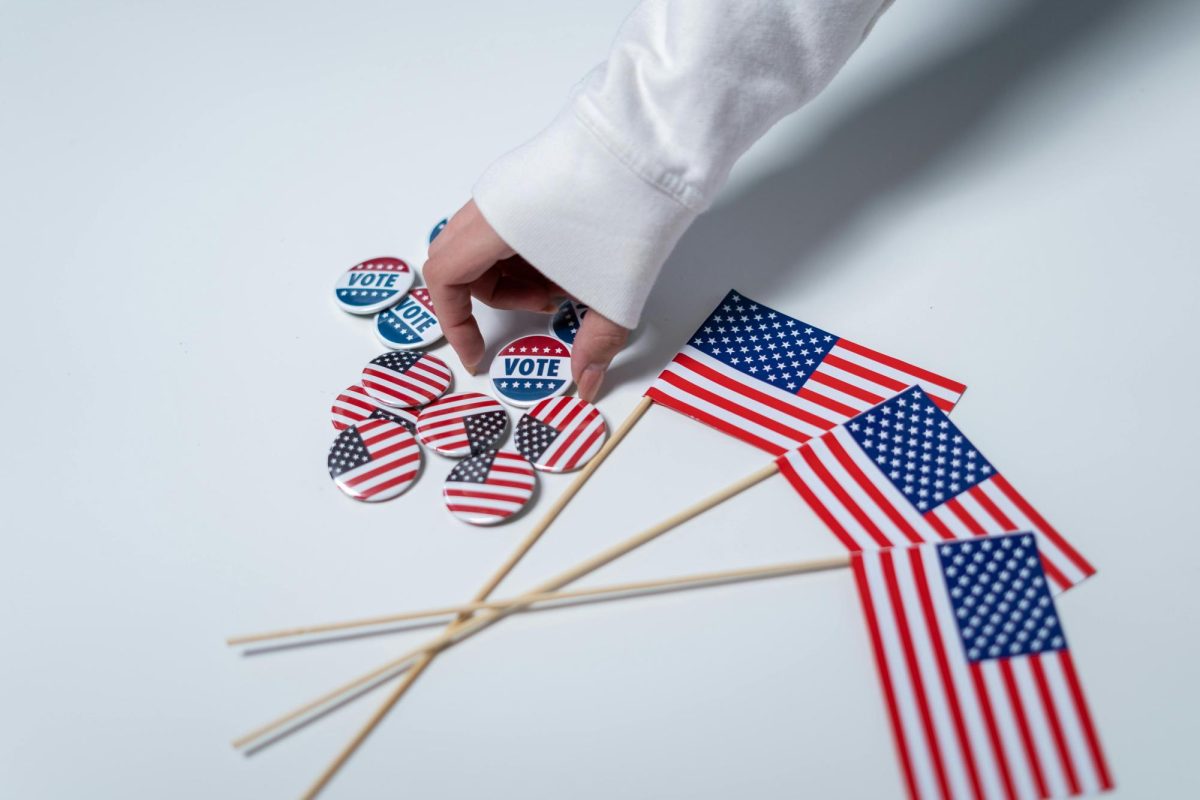By now, we all know the 2024 presidential election is approaching. But what you might not have considered is that this year’s presidential election will be your first and only as a high school student. We are all new to this as a student body, we have no roadmap for how to make this election season a time for positivity, curiosity, kindness and growth rather than one of tension, violence and division that we so often read about in the news. Breck is a puzzle, and the pieces are the student body; although we are all a part of the same community, we are full of diverse social, religious, and political perspectives.
Without context for what a presidential race in high school might entail, how do we even begin to navigate the twists and turns of the next few months? Luckily we don’t have to find the answers on our own. There are teachers among us who have experienced many presidential elections while at Breck and have seen the highs and the lows of what it means to be a Breck student during this pivotal time. In an effort to ensure that the whole Breck community can benefit from what they have to say, I interviewed three of our long-time and civically-minded faculty members who are constantly working to help Breck be its most positive during historical moments like this one. Upper School History Teacher, Mr. Grossman; Upper School Math Teacher, Ms. Gentry; and Peter Clark Center Director and Middle School History Teacher, Sarah Flotten, had many well-informed insights for the Breck community as we prepare to navigate the 2024 race. With any luck, their wisdom will help this election season go well for our Breck community. After all, it’s the only one we students get.
Lean into uncomfortable conversations about perspectives that are different from your own and be mindful that we are politically diverse
If we’re going to effectively navigate the 2024 election season as a community, we have to talk about it. Mr. Grossman articulated the importance of leaning into conversations about politics, even though it’s not always easy. He urged us to “find people that you disagree with and listen to them, talk to them, don’t try to convince them that they are wrong, don’t try to change minds, but have a conversation with them so you can understand where they are coming from.”
When I asked about what he thinks Breck is currently doing well to navigate the 2024 election, he identified, “we are talking about it, we’re not hiding from it. I think in a lot of schools talking about politics can be really taboo and I think we are leaning into those conversations right now and the more we talk about it, the more we expose our students to it, the better prepared they are for the outcome of the election.” He also reflected on changes in the student voice around politics over his time at Breck, concluding that, “[now] students are much more comfortable to speak their mind and speak their opinions. I think a lot of that comes from work we have done intentionally as a school, like the community agreements…I think if Donald Trump wins this election, our student body will be ready to deal with that. And I think if Kamala Harris wins, our student body will be ready to deal with that.” This kind of open communication about the election will serve us well even when the conversations are challenging. If we continue to use our voices in the spirit of the intentionality that is articulated in the SDIC Community Agreements, we will be more prepared to handle any result together as a community.
Be prepared for any result.
Perhaps the hardest lesson learned from previous presidential elections at Breck was related to the 2016 election, where much of the Breck community was seemingly unprepared for the election result. Ms. Flotten remembered it simply, “in 2016, I don’t think that we were all prepared for that election.” Mr. Grossman followed up with a vivid recollection of the days that followed Trump’s victory. “When Trump won, a lot of people were not mentally prepared for how they were gonna feel…We had students that were crying, we had teachers that were in really bad shape.” The lesson that I took away from these anecdotes was about the necessity for everyone in our community, no matter what party you align with, no matter what you are hoping will happen, to be prepared for any outcome.
If your candidate wins, be humble.
In 2016 there were some charged days after the election results came in. Ms. Gentry described the harsh rhetoric between students that was new to her as teacher, as “the first time I recall students ever having very fierce conversations with one another.” Mr. Grossman recounted those days as “wild,” adding that, “a lot of students felt very emboldened and excited. They were celebrating and that celebration did not land well with a lot of other people. There were people in the lunchroom standing on tables, screaming at eachother, crying.” In 2024, we can do better than this. No matter who you are rooting for, and who wins, we are likely to have a wide range of emotions about the result. Celebrating your candidate is fine, being sad about the result is fine, but we can handle all of that in a way that is respectful and humble.
Be engaged, this election matters.
One theme that was clear from all three teachers was how much they all encouraged us each to be fully engaged in the upcoming presidential election. When I asked Ms. Gentry how she thinks we are doing at navigating the election season, she first wondered how much of the student body at Breck actually cares about the result of the election at all, and the implication of her thoughts was that more of us should. Mr. Grossman suggested, “the most important thing I think students can do is read and consume diverse media sources.” Relatedly, Ms. Flotten noted that “Minnesota ranks consistently at the top of voting and the constitution asks us to be educated voters and to vote,” and so she urged us, whether you’ll be 18 by election day or not, to be civically engaged, saying, “I think we need to encourage people to vote and have faith in the process.”
